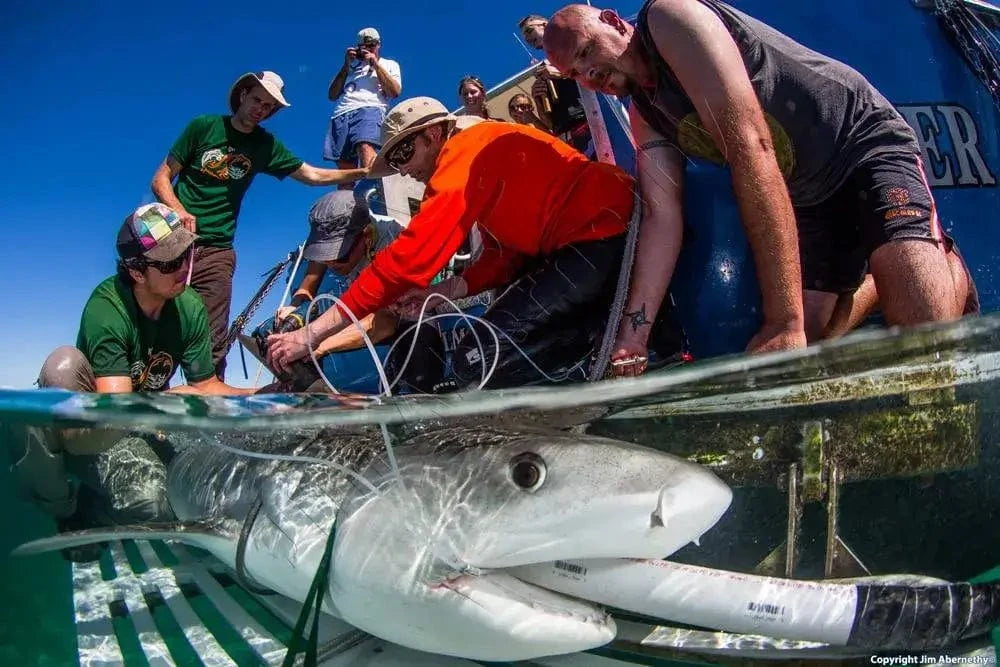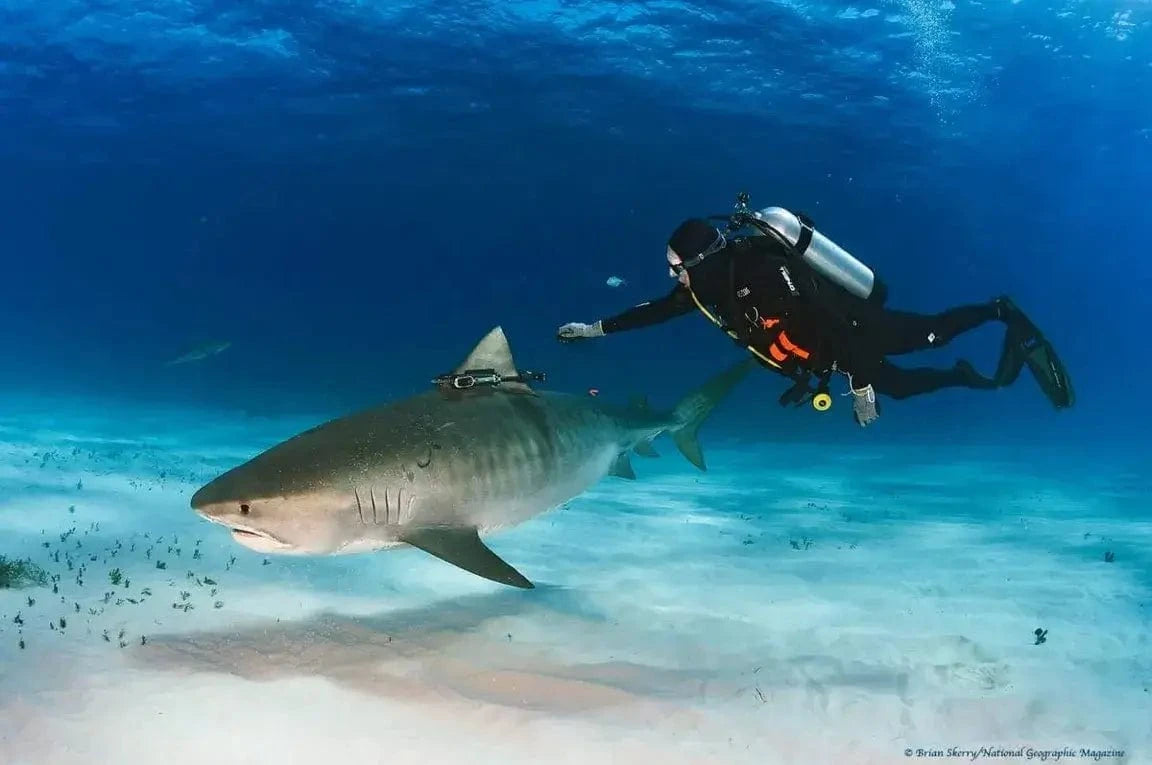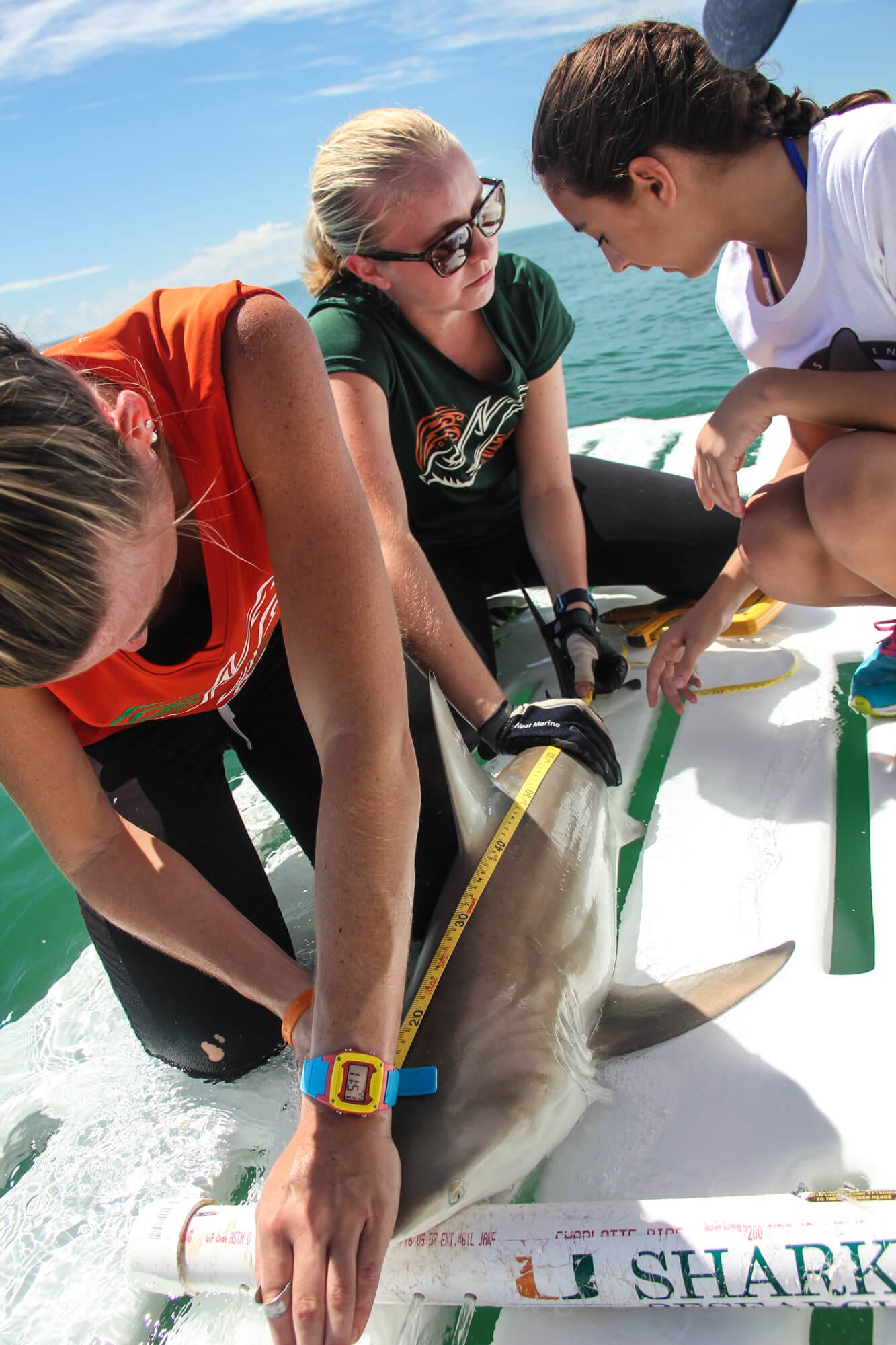Your purchases have donated $343,639 to marine science research and education!
Hey, we're Waterlust
We're in business to build a more sustainable world by bringing environmental science into your life in creative ways.
★★★★★
Waterlust is the best!
Great products, great customer service, great mission! Worth every penny.
- Michelle Rumbaut, TX






Educational resources & donation included with every purchase. Learn more.
Whether hitting the water for a sunny day adventure or tackling that long postponed yard project at high noon, our silky smooth sun masks (neck gaiter) protect your nose, ears, lips, cheeks, and neck from UV exposure.
Intimidating stripes cover one of the ocean’s largest apex predators. Sitting atop the marine food pyramid, tiger sharks play a significant role in balancing the tropical and temperate water ecosystem, which is why we celebrate their beauty and support research that informs management of their population.
Made from recycled materials and knitted into an ultra fine, lightweight fabric, think of it as the working persons stretchy silk. So silky smooth and cool to the touch, your skin literally gets goosebumps when you put it on, but stays shielded from the sun all day on the water. You can stand in an asphalt parking lot on a hot, humid, sunny day in Miami in July at noon and still feel cool. Yep, our test team tested it…reluctantly.
91% Repreve® RPET (recycled polyester made from post-consumer plastic bottles), 9% spandex
5% of sales will be donated to the Shark Research and Conservation Program (SRC) at the University of Miami, helping to fund important research focused on the ecology, movement and conservation of tiger sharks as well as other local shark species.
Orders are lovingly packaged using minimal packaging and eco-responsible materials, and shipped from our wonderful partner warehouse in Pennsylvania within the same or next business day. We’ll email you with your tracking info as soon as your order is shipped.
Learn more about shipping, exchanges and returns here.
Tag us @waterlust to be featured
Tiger sharks are classified by the International Union for Conservation of Nature (IUCN) as “Near Threatened”, and thus, research, education and outreach is essential to ensuring healthy populations. As one of the ocean’s largest predators, these critical species sit at the top of the food chain, helping to regulate the delicate balance of populations of those beneath in the ecosystem. Decreased populations can result in trophic cascades, impacting the abundance and behavior of other species lower on the food chain.
A female tiger shark rests on the submerged platform as the team attaches a satellite tag. Photo by Jim Abernethy.
Photo by Neil Hammerschlag
Neil Hammerschlag, deploying a Nat Geo Crittercam and acoustic tag on a free swimming tiger. Image by Brian Skerry.
Multiple research methods have shown that some species of sharks have declined in population by 90% or more during the last several decades in areas where they were formerly abundant. These declines are due to direct targeting in commercial fisheries, mostly for their fins and sometimes meat. Additionally, sharks are often caught unintentionally as bycatch in many other fisheries, caught and killed in some recreational fisheries (unlike catch and release), and may also be impacted by humans more indirectly through threats like habitat loss, pollution, and human-driven declines in the fish species sharks rely on for food.
"We are so proud of our collaboration with Waterlust. Not only does their support help enable our shark conservation research, but the apparel itself is a walking billboard for marine conservation. I love it when people on the street stop to ask me about my tiger shark board shorts. It's an opportunity to start a conversation about the wonders and perils faced by sharks and how the average person can help make a difference.”
Neil Hammerschlag, Ph.D.
the Shark Research and Conservation Program at the University of Miami
The Shark Research & Conservation Program (SRC) at the University of Miami conducts cutting-edge shark research while also inspiring scientific literacy and environmental ethic in youth through unique hands-on field research experiences. Every year, SRC brings out thousands of people, mostly school-children, on their research boats to survey, sample, tag and study sharks. Opportunities are especially made available for under-served populations in the sciences. SRC’s science focuses broadly on understanding the effects of environmental change on the behavioral ecology and conservation biology of sharks in a human‐altered world.
Perfect for the field!
I love this buff! I love that I can adjust it to be snug around my face, and tuck the flap in the back into my shirt for extra protection!
Purpose-Driven, Family-Run
Advocate for Marine Conservation
Donate to Research + Education
Eco-Responsible
Notify me when available
We will send you a notification as soon as this product is available again.
We don't share your email with anybody




